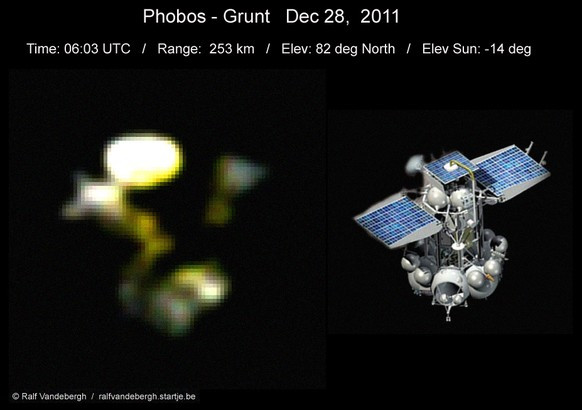Russian Spacecraft Phobos-Grunt to Crash Into Earth on Sunday

The failed Russian spacecraft Phobos-Grunt is expected to crash back down to Earth on Sunday after its unsuccessful mission to Mars, experts have said.
The 14.5 tonne rocket was originally intended to explore Phobos, one of Mars' two moons, but has been circling Earth since November after one of its rocket boosters failed to ignite on take-off.
Most of the spacecraft is expected to burn up on re-entry to the Earth's atmosphere, but around 20-30 pieces of debris are expected to hit Earth.
While it is difficult to foresee the exact time that the Phobos-Grunt will fall out of Earth's orbit and where it will land, Russian space agency Roscosmos has predicted that Sunday will crash back down the Earth.
Scientists have said that it is unlikely that the falling rocket will harm anyone, as its final destination is most likely to in the ocean at midday (GMT) on Sunday.
It is the third satellite to crash out of the sky in under five months, following NASA's defunct UARS craft in September and the dead German ROSAT satellite in October.
The 12 tonnes of highly toxic rocket fuel that was used on the Phobos-Grunt makes this rocket potentially toxic spacecraft to fall back down to Earth.
The Phobus-Grunt probe, which cost over £100m to build, was launched from the Baikonur Cosmodrome in Kazakhstan alongside the spacecraft Yinghuo 1, the first Chinese mission to Mars.
The spacecraft was expected to arrive at Mars in the autumn of 2012, enter the Martian orbit and studying the planet for some months before landing on Phobos in the spring of 2013.
© Copyright IBTimes 2025. All rights reserved.






















